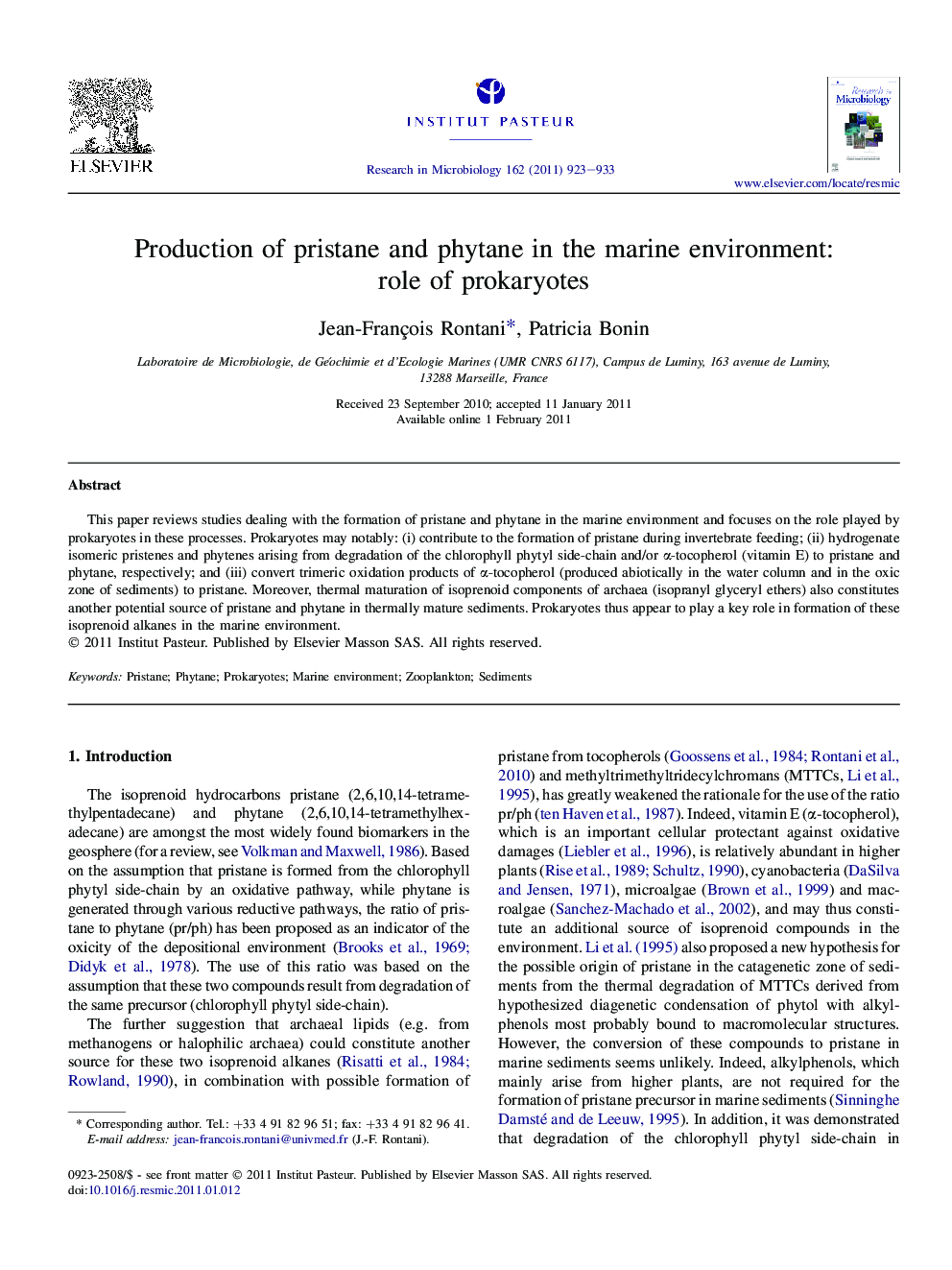| Article ID | Journal | Published Year | Pages | File Type |
|---|---|---|---|---|
| 4358998 | Research in Microbiology | 2011 | 11 Pages |
This paper reviews studies dealing with the formation of pristane and phytane in the marine environment and focuses on the role played by prokaryotes in these processes. Prokaryotes may notably: (i) contribute to the formation of pristane during invertebrate feeding; (ii) hydrogenate isomeric pristenes and phytenes arising from degradation of the chlorophyll phytyl side-chain and/or α-tocopherol (vitamin E) to pristane and phytane, respectively; and (iii) convert trimeric oxidation products of α-tocopherol (produced abiotically in the water column and in the oxic zone of sediments) to pristane. Moreover, thermal maturation of isoprenoid components of archaea (isopranyl glyceryl ethers) also constitutes another potential source of pristane and phytane in thermally mature sediments. Prokaryotes thus appear to play a key role in formation of these isoprenoid alkanes in the marine environment.
